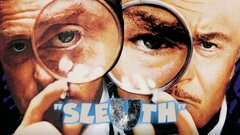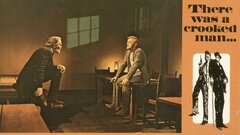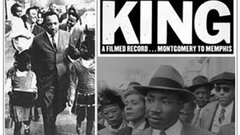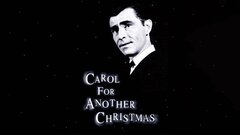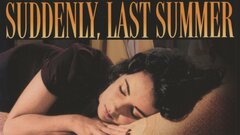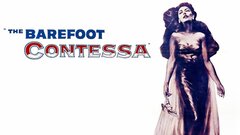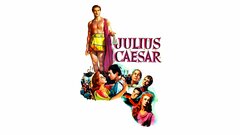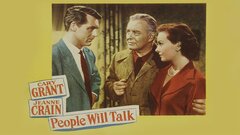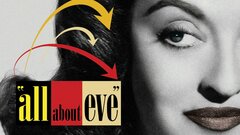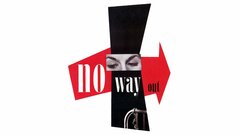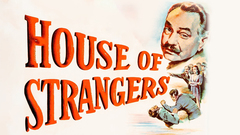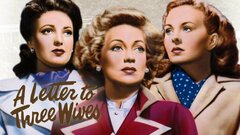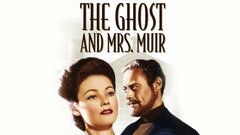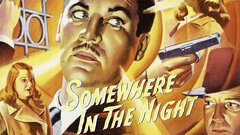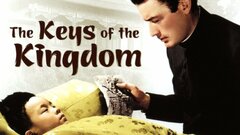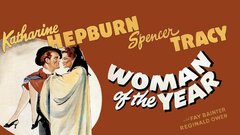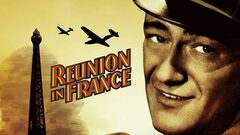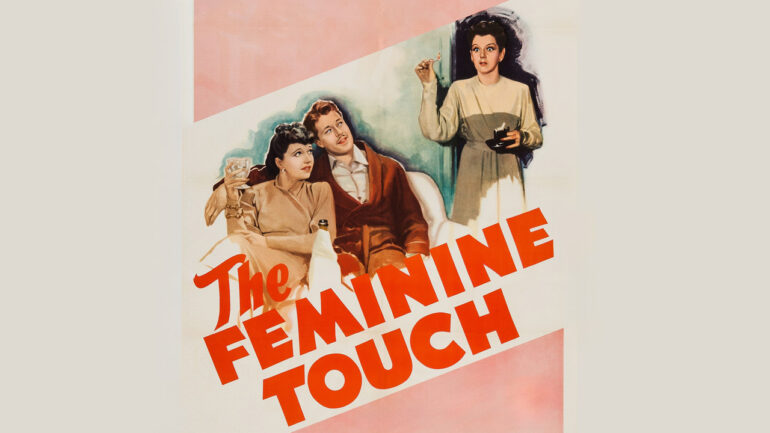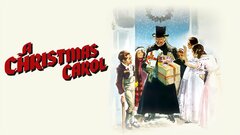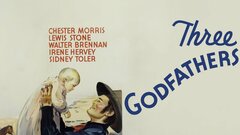Having followed brother Herman J. Mankiewicz's footsteps into motion pictures, Joseph L. Mankiewicz went from prominent writer to prolific producer to esteemed director over the course of his long career. Along the way, he won a total of four Academy Awards - two for writing and two for directing.
Mankiewicz entered the business as a writer, working for Paramount Pictures and later MGM, where he segued into producing. He was finally given a shot at directing after 20 years in Hollywood, and almost immediately earned a reputation as a literate director with films like "The Ghost and Mrs. Muir" (1947) and "A Letter to Three Wives" (1948). He hit directorial peak with "All About Eve" (1950), a showbiz slice-of-life that earned a record 14 Academy Award nominations and won six.
From there, he directed the excellent, but little-known spy movie "5 Fingers" (1952) and steered Marlon Brando toward a third Oscar nomination for his performance in "Julius Caesar" (1953). After helming "The Barefoot Contessa" (1954), he helmed the musical "Guys and Dolls" (1955) and personal favorite "The Quiet American" (1958). He later suffered a career setback due to "Cleopatra" (1963), a massively over-budget epic that nearly bankrupted 20th Century Fox. Though he would only direct one more feature, Mankiewicz sealed his legend as an esteemed member of a prominent Hollywood clan.
Born on Feb. 11, 1909 in Wilkes-Barre, PA, Mankiewicz was raised by his father, Franz, a German immigrant who became a teacher, and his mother, Johanna, a dressmaker. At four years old, his family moved to New York City, where Mankiewicz attended PS 64 and Stuyvesant High School. After earning his bachelor's degree from Columbia University in 1928, he worked as a foreign correspondent for the Chicago Tribune in Berlin before moving to Hollywood, where brother Herman J. Mankiewicz had already become one of motion pictures' highest-paid screenwriters.
In fact, his brother was head of the scenario department at Paramount Pictures and gave Mankiewicz a $60-a-week writing contract. He actually began his career with a bit part as a reporter in William Wellman's crime drama, "Woman Trap" (1929), before he wrote the intertitles on Victor Fleming's first sound film "The Virginian" (1929), starring Gary Cooper and Walter Huston. Mankiewicz soon wrote scripts for a pair of comedies, "Fast Company" (1930) and "Slightly Scarlet" (1930), before penning the all-star review "Paramount on Parade" (1930), which featured the likes of Jean Arthur, Clara Bow, Gary Cooper, Fredric March and William Powell.
Having found consistent work as a screenwriter, Mankiewicz co-wrote his first big success, "Skippy" (1931), which starred youngest-ever Oscar nominee Jackie Cooper as an enterprising lad who helps his poor best friend (Robert Coogan) raise money for a dog license, only to suffer a shocking tragedy at the hands of a mean dogcatcher.
While Cooper made history with his performance, Mankiewicz faired pretty well himself with an Oscar nomination for Best Adapted Screenplay. After co-writing the lesser-known sequel, "Sooky" (1931), he penned the scripts for "Newly Rick" (1931), "This Reckless Age" (1932) and "Sky Bride" (1932), before working with his brother, who served as a producer on the W.C. Fields comedy "Million Dollar Legs" (1932). Following the Paramount anthology "If I Had a Million" (1932), he wrote the black-and-white Bing Crosby musical "Too Much Harmony" (1933), the adaptation of Lewis Carroll's "Alice in Wonderland" (1933) starring W.C. Fields, the crime-themed "Manhattan Melodrama" (1934) with William Powell, Clark Gable and Myrna Loy, and the romantic comedy-drama "Forsaking All Others" (1934), starring Gable, Joan Crawford and Robert Montgomery.
By this point in his career, Mankiewicz had moved away from Paramount in favor of MGM, where he began producing motion pictures like Crawford's "The Gorgeous Hussy" (1936), Fritz Lang's classic courtroom drama "Fury" (1936) and the Crawford comedy "The Bride Wore Red" (1937). He went on to produce Frank Borzage's "Three Comrades" (1938), "The Shopworn Angel" (1938) with James Stewart and Margaret Sullivan, "The Adventures of Huckleberry Finn" (1939) starring Mickey Rooney, and George Cukor's all-time classic "The Philadelphia Story" (1940), with Cary Grant, James Stewart and Katharine Hepburn. Two years later, he produced another Hollywood classic, "Woman of the Year" (1942), a romantic comedy starring Hepburn as a hotshot newspaper reporter who falls in love with and marries a lowly sports writer (Spencer Tracy).
It was the legendary screen team's first of many films together. At this point, however, Mankiewicz wanted to move into directing, but had to leave MGM and switch over to 20th Century Fox to do so. After writing and producing "The Keys of the Kingdom" (1944) for Fox, Mankiewicz made his directing debut with "Dragonwyck" (1946), a gothic period drama about the wealthy heir of a feudal dynasty (Vincent Price) who slips into insanity after poisoning his wife in order to marry a distant relative (Gene Tierney).
Now moved fully into directing, Mankiewicz entered the prime of his career, helming a number of classic movies while amassing several Academy Award nominations and a pair of Best Director statuettes by the time he was finished. He directed Gene Tierney and Rex Harrison in "The Ghost and Mrs. Muir" (1947), an adaptation of Josephine Leslie's romantic fantasy novel about a young widow (Tierney) who moves to a seaside cottage where she encounters the ghost of a roguish sea captain (Harrison) and falls in love with him.
After directing Harrison in the World War II thriller "Escape" (1948), Mankiewicz began cementing his reputation as one of Hollywood's more literary directors with "A Letter to Three Wives" (1948), a witty comedy about three women (Linda Darnell, Jeanne Crain and Ann Sothern) who are about to embark on a boat trip, only to receive a letter from a mysterious lady informing them that she is about to run off with one of their husbands. The author declines to name which husband she will be joining, leaving all three to examine through flashbacks what exactly went wrong in their marriages.
Nominated for three Oscars, including Best Picture, Mankiewicz won two for Best Original Screenplay and Best Director. Mankiewicz went on to direct the psychological drama "House of Strangers" (1949) starring Edward G. Robinson, and the race-themed drama "No Way Out" (1950), which featured Sidney Poitier in his feature debut. He next helmed his greatest accomplishment, "All About Eve" (1950), a witty showbiz dramedy about an aging Broadway star, Margo Channing (Bette Davis) who takes on a seemingly naïve fan, Eve Harrington (Anne Baxter) as her personal assistant, only to learn that the Eve is using her and everyone else to advance her own theatrical career.
Once again, Mankiewicz directed from his own script which featured many unforgettable lines - none better or more famous than Davis warning partygoers to "Fasten your seatbelts. It's going to be a bumpy night." Nominated for an astounding 14 Academy Awards, "All About Eve" took home six Oscars, including Best Screenplay, Best Director and Best Picture. Mankiewicz followed up with the politically themed comedy "People Will Talk" (1951) starring Cary Grant and Jeanne Crain, and the true-to-life spy drama, "5 Fingers" (1952), which earned him his third Oscar nomination for Best Director.
Working with famed producer and actor John Houseman, Mankiewicz directed his first Shakespeare film with "Julius Caesar" (1953), a surprisingly visual adaptation of the historical play that starred James Mason as the reluctant traitor Brutus, John Gielgud as Cassius, and Marlon Brando as the loyal Marc Antony. He next directed Humphrey Bogart in "The Barefoot Contessa" (1954), a biting if rather derivative showbiz drama that depicted Bogie as a down-and-out director who launches a comeback by turning a nightclub dancer (Ava Gardner) into a star. Supporting actor Edmund O'Brien, who played a sweaty publicist, won an Oscar for his performance, while Mankiewicz earned another nomination for Best Screenplay. He went on to direct the musical "Guys and Dolls" (1955), starring Brando, Frank Sinatra and Jean Simmons, and changed the core conceit of Graham Greene's "The Quiet American" (1958), which was originally a polemic against American involvement in Southeast Asia, giving the film a pro-interventionist stance instead.
Up to this point, Mankiewicz had enjoyed a great deal of critical and commercial success, but the first signs of trouble came with "Suddenly, Last Summer" (1959), an adaptation of Tennessee Williams' one-act play about a wealthy Southern woman (Katharine Hepburn) who tries to convince a noted surgeon (Montgomery Clift) to lobotomize her debutante niece (Elizabeth Taylor), who has suffered from serious mental issues ever since the tragic death of her cousin.
Williams reportedly despised the script, while Mankiewicz blamed the playwright for mediocre source material. Meanwhile, Clift was suffering from the ill effects of a 1956 car crash that had disfigured his once handsome face, and was increasingly dependent on drugs and alcohol, making him unable to do long takes or even work a full day.
Mankiewicz's treatment of Clift was so poor that Hepburn reportedly spat in his face after her last day on set. Despite the innumerable problems behind the scenes, "Suddenly, Las Summer" was a box-office hit, earning Academy Award nominations for both Hepburn and Taylor.
In 1960, Mankiewicz made the career-destroying mistake of taking over production of "Cleopatra" (1963) from initial director, Rouben Mamoulian, who resigned in the early stages of filming. Mankiewicz had jumped onboard a movie that was already several million dollars over budget with no useable footage, since several key actors left for other work. Making matters worse, titular star Elizabeth Taylor fell seriously ill and required an emergency tracheotomy, which shut down the movie. Later production had to be moved from London to Rome in order to facilitate her recovery.
Meanwhile, her and co-star Richard Burton engaged in a scandalous affair - both were married at the time - which caused negative headlines worldwide and damaged goodwill further. Mankiewicz was subsequently fired after production, but rehired since nobody could cobble together the footage for a usable cut. He eventually turned in a film clocking six hours, which the studios whittled down to just three over Mankiewicz's vehement objections. When all was said and done, "Cleopatra" - a rather impressive film centered around the love affair between the Egyptian queen and Marc Antony (Burton) - was major box-office flop that almost bankrupted 20th Century Fox.
Ironically, the film was the highest-grossing movie of 1963, the only such film to be the biggest money maker of the year to still lose money.
The fallout from "Cleopatra" on Mankiewicz's career was lasting. In fact, he would make only one more studio film, "There Was a Crooked Man " (1970). Meanwhile, he turned to television to direct "Carol for Another Christmas" (ABC, 1964), a modernization of Charles Dickens' A Christmas Carol starring Peter Sellers, Sterling Hayden and Eva Marie Saint. After the low-budget crime comedy "The Honey Pot" (1967) with Rex Harrison, Cliff Robertson and Maggie Smith, Mankiewicz directed "There Was a Crooked Man " before completing his final film.
"Sleuth" (1972), a sophisticated double-cross murder yarn starring Michael Caine and Laurence Olivier that earned Mankiewicz his final Academy Award nomination for Best Director. While not comparable to the director's best work of the 1940s and 1950s, the independently produced film was a spectacular showcase for the two actors, who were the only characters in the film. Following "Sleuth," Mankiewicz retired and left the family business to his sons, writer-director Tom Mankiewicz - who would achieve fame as the uncredited but later acknowledged screenwriter of "Superman: The Movie" (1978) - and producer Christopher Mankiewicz.
He eventually passed away on Feb. 5, 1993 in Bedford, NY. He was 83 years old.
By Shawn Dwyer



